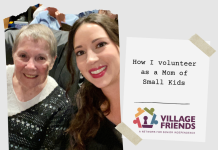I am a mother who struggles with mental illness. I grapple every day with questions much too deep for me to understand, and I fight my feelings with all I have in me to keep myself functional. As an individual, this battle is burdensome and demands more energy than I feel like I can muster. As a wife, it is painful, as I know my husband bears the brunt of my emotional distress. As a mother, it nearly breaks me, for I know how easily I could change the course of my son’s life.

What do I mean by mental illness? It’s complicated. I’ve been diagnosed with a half-dozen conditions, all touching on my experiences but none encapsulating them until this most recent diagnosis. I’m not sure disclosing it would do any more than confuse most people anyway, so suffice it to say I struggle with depression and breaks from reality. Now when I say depression, I mean something deeper and more despairing than a simple sadness or melancholy. Depression is a monster, and it does much more than suck the energy and motivation out of me – that’s just its first stage. From there it moves to self-hatred and temptations to self-harm, and as if that weren’t enough, it inevitably comes to suicidal ideation. I don’t ever want to die, it’s just the pain of living gets to be overwhelming.
Mental illness is no joking matter. It tears apart the lives of many individuals and families and leads to drug addictions, alcoholism, self-destructive behavior like uncaring, promiscuous sex, inordinate spending, and even suicide. I’ve seen the impact of many of the diagnoses in the DSM (Diagnostic and Statistical Manual of Mental Disorders) – from major depression and anxiety disorders to bipolar to schizophrenia to dissociative identity disorder to personality disorders – and it’s messy. Even if the individual deals with it all as maturely as possible, mental illness suppresses one’s will to fight it, shatters one’s assumptions about how life works, tears at one’s hopes and dreams, and engulfs one’s ability to live a “normal life,” whatever normal means.
My own mental health issues started in college, before I had gotten together with my now-husband, long before I knew I would be a mother. I ended up in the psychiatric hospital twice in my junior year of college and had to take a year off at home, recovering. In that time, I started dating my husband long-distance, and six months after I went back and finished my Bachelor’s degree, we were married. I moved from California to North Carolina to be with him, and four months into marriage, we found out I was two months pregnant.
I was ecstatic! I’d never known I wanted a child until we’d gotten married, but it was like a switch flipped and all I could think about was a baby. Then God blessed us with one. I couldn’t have been happier! Unfortunately, the happiness wore off around halfway through the pregnancy, and depression hit hard. Very hard. With it came breaks from reality that left me disoriented and desperately ashamed. I could hardly keep myself together. Somehow I made it through the last few months, and Levi was born on June 1, 2014, at 3:24 a.m., on his due date.
The joy returned the day Levi was born, and for 8 months, I was happier than I’d ever been. Every day was new, every moment a first for something with my son. Even once we’d established a routine, I took immense pleasure in being a mother, in spending time with my son and in caring for him. I don’t know when it started, but somewhere in that period around 8 months postpartum, the depression crept back in. My thoughts turned despairing, and I couldn’t understand what was wrong with me. I’d thought I was recovered, that I was done with mental illness, past it, but I wasn’t. The day I began my third hospital visit, when Levi was 10 months old, I realized – becoming a mother had not saved me. My brain was still just a broken as it had been before, and there was no easy out.
I spent over a week in the psychiatric unit that third visit. They stabilized me with medications, but psychiatrists and therapists will tell you getting out of the hospital is just the first step on a long road to recovery. It’s supposed to take six to twelve months to reestablish functionality, and indeed, I found myself still plagued by despairing thoughts and dark impulses for months.
My husband worked nights back then at a restaurant, so I had a lot of evenings alone with our son. Evenings were the hardest. Something about the sun going down and it getting dark outside triggers all manner of difficulties for me. As such, I found myself thinking about hurting myself a lot. I would restrain myself by sheer will, but it took nearly everything out of me. I held my young son in my arms and cried so many tears I was sure the Lord had lost count. (He hadn’t.)
That’s when I discovered, when I looked at Levi, I’d realize I couldn’t do that to him. I had a friend in college whose mother struggles with bipolar who heavily engaged in self-harm while her daughter (my friend) was growing up. Remembering the fear in my friend’s voice when she described a night they’d thought her mom had committed suicide. This was enough to convince me that I could never do that to my son. I’d persuaded myself my parents and sister could get along without me well enough – they would still have each other. I’d told myself my husband would be okay, too – he could find a new wife, one without all these issues. But then I looked at Levi – he would only ever have one mother, and I could not take her from him. Somehow, that little bundle did what everything else in the world hadn’t been able to do. Levi reminded me how very much I am loved and how very dearly I would be missed. He opened my eyes to the pain I would leave in my wake – for him, for my husband, for my family, for my friends. God used my son to reveal what He and everyone around me had been trying to tell me for so long, and I am alive because of it.
Mothering with mental illness is more difficult than I ever imagined anything could be, but when I hear my little boy tell me he loves me, when I feel his little arms around me, I can’t help but remember all I’ve learned from him. He won’t understand it now, but someday I’ll tell him, “There were days I wanted nothing more than for it all to end, but I’ve always loved you more.”












Thanks for sharing this. It takes so much courage and mental health is not talked about enough. I pray for total healing for you and for you to completely enjoy motherhood and being a wife. Thank you again for sharing this. It is so encouraging.
Thank you, MJ. I’m so glad I could be encouraging with this. Mental health is such a touchy issue sometimes, but I hope sharing will help reduce the stigma.
Really great article. Admitting any struggle as a parent is terrifying. Admitting mental health issues is even more terrifying. I commend you on your honesty and I know there are so many moms who need to read this! Thank you for sharing your story and shedding some light on tough topics.
Thanks, Brittany! It’s so hard to share our deep struggles with others, but I think it’s so important to let each other know we’re only human, too.
This is so beautiful! Thank you for opening up and being raw and candid with us. I cried while reading this.
Thank you, Deniz. I’m encouraged that my experience can touch people and hopefully encourage them to be honest with their own struggles.
Comments are closed.